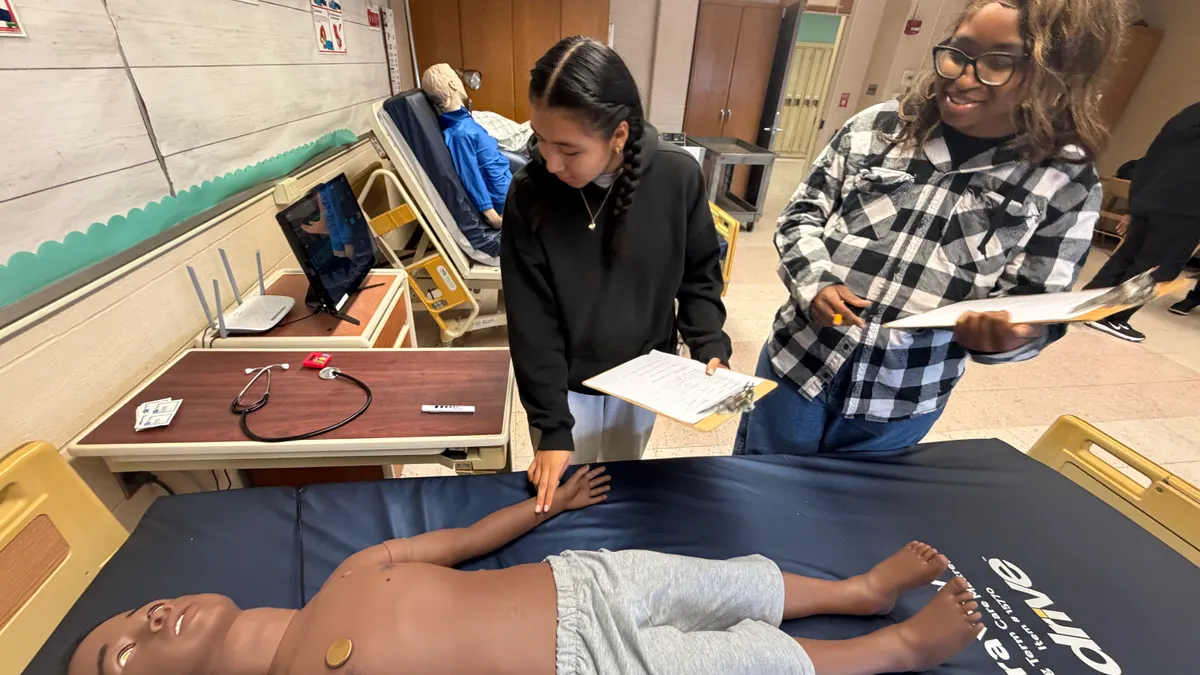Christopher Burrows has lived with Aboriginals in Australia, toured Chichen Itza with an Mayan guide, and this summer is visiting Viking settlements in Iceland. While he cherishes the experiences for himself, he also steeps himself in details to bring back to his students when school rolls back around in the fall.
“I teach social studies so gathering first hand experiences about cultures and customs is very useful to use for comparisons to our own society,” Burrows, a language arts teacher at Potter Junior High School in Fallbrook, California, said in an email. “I try to take a lot of photographs and videos to give my students a glimpse into all of the experiences. When we study pre-colonial native societies in the United States I like to use information about how other cultures were living life in a similar fashion.”
Summer vacation is sacred time — teachers and students try to enjoy as much downtime as they can. But some educators view the warmer months not just as an opportunity to unwind from the school year, but also as a way to stock up on ideas and curriculum lessons for the fall.
Documenting the details
Take Bryce Carlson, who is spending the summer rowing by himself across the North Atlantic Ocean, starting in Newfoundland and going to England. He was inspired, he said in an interview, after participating in an event in 2015 called Race Across USA, racing 11 other runners from Los Angeles to Washington, D.C. His high school students at Seven Hills School in Cincinnati, Ohio, can follow his progress online in real-time through his web site, North Atlantic Solo Unsupported Row, but that doesn’t mean he wants to impose on their free time, nor does he expect them to be working right now.
So as he rows — and attempts to break the world record for the fastest solo row across the North Atlantic — he is also collecting as much as he can to bring back to students. For his work, Carlson is grabbing video and images with a few GoPro cameras, his iPhone, a satellite communication unit, as well as a drone — which he admits, he hasn’t used as much as he had hoped. He is also using a school management program called Abre, to help him build lessons from the material he collects after he returns.
“During the adventure itself, I think it’s important to record the experience in whatever way you’re comfortable with,” Carlson said. “Take pictures. Keep a written or video journal. Collect data. All of that becomes usable in the classroom later, both formally and informally, consciously and unconsciously.”
Funding the fun
Carlson admits that his extensive sojourns can be expensive, and he looks for local partners, scholarships and grants to help supplement some of his costs. Still, he also knows sourcing that information, and applying for these opportunities, can take time. Finding them is often the first step.
English teacher Lillie Marshall runs a website Teaching Traveling that has extensive lists of funding options for teachers. Still, she encourages educators to still strike out on their own and seek an adventure. If educators can’t find a way to bring in outside money, travel is always worth it, “… even if you end up self-funding a trip to somewhere which may not be directly connected to what you are teaching, the mere act of being in a new place will snap you into a great new plane of thinking, being, and -- by extension -- teaching,” the Boston-based teacher said in an email.
Marshall mentions a colleague who traveled to Ghana to research the slave trade in West Africa, and uses the photos and information he collected on his own for a lesson with students. With these materials that their teacher collected by hand — as opposed to those from books —“…students are doubly invested in this already rigorous and profound assignment,” she said.
Burrows hopes his travels will also inspire students to one day go out and see the world on their own. While he is happy to bring back what he’s seen to them, he believes the ultimate result would be for them to create their own experiences for themselves.
“My hope is to encourage them to see that travel really does broaden the mind, that travel really is the best education, and that you do not need to be a millionaire to go explore the world and have meaningful experiences with different cultures and people,” he said.





 Dive Awards
Dive Awards












